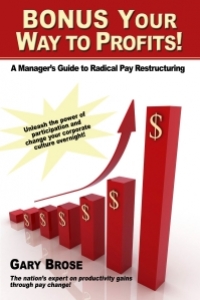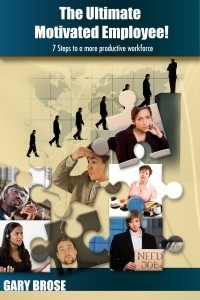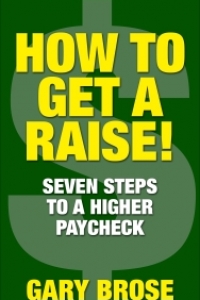$15 Minimum Wage: Panacea or False Promise?
Lately, in the Seattle area, there has been a great deal of discussion (and voting) about making a dramatic increase in the minimum wage level. This is mostly due to numerous stories about single moms or people in dire straights who have found themselves in the position of having to attempt to raise a family on one minimum wage job. Much of that has been brought on by the recession and more has occurred because forty and fiftysomething-folks have lost their regular jobs and have had to resort to underemployment. As heartbreaking as these stories are, I don’t believe that the solution is to dramatically increase the minimum wage. A friend of mine asked me my opinion of what would happen if the minimum wage was raised from the current $9.32/hr. to $15/hr. Trying to summarize that quickly was a challenge so I am afraid I resorted to a 900 word answer.
Much of the problem with discussing the minimum wage issue is that those opposed are so afraid of appearing to be greedy corporate profit-mongers that they just find it easier to go along with the $15 minimum wage raise. So at the risk of appearing to put profits before people, I have to ask: Does anyone really believe this is a remedy?
I’ve owned small businesses for 30+ years and let me tell you what will happen if Seattle passes a $15 minimum wage for specific industries or all industries in town: Businesses that are already struggling will just close their doors. Most others will decrease the size of their workforce and turn fulltime employees into part-time. New startups will open in the suburbs but not in Seattle. Nearly everyone will raise prices. Fast food entrees will rise $1 to $2 each. Restaurant prices will go through the roof. Retail products in stores that have a lot of employees on the floor (think big box stores) will raise prices across the board. If the wage increase is limited to fast food or some market segment, everyone else will still be affected. Employees at the normal minimum wage will leave those jobs to try to move into the higher paying minimum wage jobs. So the “unaffected” companies will have to raise pay rates and prices just to compete for workers. If small businesses are exempt, that will only be on paper. In the real world, no one will want to work for $9.50 per hour when they can get $15 at a bigger company so small companies will be forced to raise the starting pay to attract people. And raise their prices too. Many will close and very few new startups will occur.
Worse than all those things, in my opinion, is that many first time workers out of high school will be unable to find jobs. With fewer entry level openings, only experienced people will get the work leaving thousands of young people unemployed in the city. The minimum wage is supposed to be in place to make sure that the young, untrained first time employees get a reasonable pay level as they learn and gain valuable job experience. Frankly, and this sounds harsh, but it is true: Anyone working in the same job for minimum wage for five years or more has made the choice to not advance their own career. Raising a family at the minimum wage level is not possible because it wasn’t meant to be a long-term wage in the first place. It was meant to be a training wage that helps people break in, learn how to work and gain helpful experience so they can move on. Thus this hyper bump-up in pay benefits the long-term minimum wage workers but does nothing but damage to the aspirations of first-time employees. At an artificially inflated rate, only the best workers will keep jobs or get new ones. First time job seekers will be ignored.
If we could legislate our way out of economic inequities, I would be the first one in line supporting it. But artificially raising the minimum wage will not do that. When everyone at the lowest pay level is at $15, they will still be the proverbial “low man on the totem pole”. Fast food will cost more, rents will be higher because the market can support it, restaurant prices will shoot up to a point beyond reach for them, other retail products will cost more and it won’t be long before you hear the cry for a $20 minimum wage … as the new remedy. Relatively, everyone will be the same except that EVERYTHING will cost more – for EVERYONE. And as a sad side effect, those without jobs or with only part-time work, will be far worse off than they are now.
So what can you do if you are stuck in a low end job? What can a minimum wage employee do to change their prospects? First of all, you can quit thinking like a victim. You are not a pawn. You are not powerless. You can go to your boss and ask what you would have to do to earn a raise. He or she will tell you and then raise your game up and earn your raise. Some incredibly short-sighted organizations pay minimum wage only and do not give raises to entry level employees. If you work for one of those, spend your free time interviewing for a job at a company that does reward hard work with raises. Take control of your own fate. Make yourself more valuable to your current employer or your next one. Do NOT sit around waiting for government to rescue you.
Somehow over the years we have lost some of what makes America great. The spirit of individualism; the ability to face adversity and beat it down; the belief that we are the masters of our own fate. I have never seen a hard working employee that did not reap the benefits of that work. Either they earn more from the current employer or they gain the confidence and experience necessary to shape their own career and move on to a better opportunity. Don’t give up on yourself. You are the captain of your own ship. Steer it yourself. You are a free agent. Go after your own dream. Make yourself so valuable that your current employer will gladly pay you more or you will find someone who will. And remind yourself every day: This is America – we make our own chances here.
Grandma’s Business Lesson
When I was 11 years old, I learned my greatest business lesson and I believe I will remember it all my days. I didn’t know what it was at the time and really didn’t understand it until I was in my thirties but it is a strong one and has colored my belief in how to manage people ever since. I told the story of Grandma’s Lesson on one of my videos on the Flying Shorts Channel. You can check it out here (and try to disregard the part where I get all choked up!)


